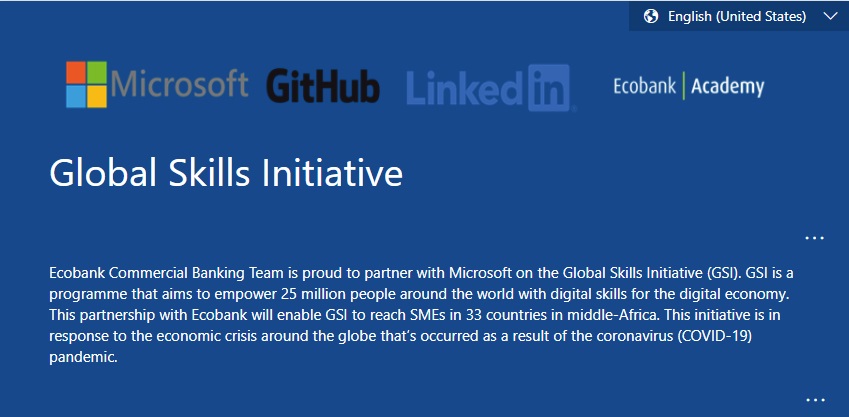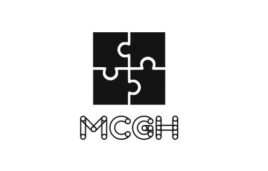
Ecobank, the pan-African banking group, is partnering with Microsoft, LinkedIn, GitHub and Ecobank Academy to train and equip Small and Medium-sized Enterprises (SMEs) across sub-Saharan Africa. The training will provide SMEs with digital skills and knowledge to reach their full potential. As well as play a vital role in driving Africa’s economic resurgence.
SMEs have been significantly impacted by the COVID19 pandemic with its attendant lockdowns and disruptions to supply chains, plummeting sales, lost revenue and operational challenges. In response to feedback from our customers, Ecobank through its Commercial Banking Segment is helping business owners close the digital skills gap within their chosen fields and improve the digital capabilities of their employees.
“The COVID-19 pandemic has turbocharged the shift towards digital”, says Josephine Anan-Ankomah, Group Executive, Commercial Banking for the Ecobank Group. “It is essential that businesses adapt so that they are able to compete effectively in today’s rapidly changing landscape. Ecobank’s Commercial Banking is committed to supporting SMEs across our pan-African footprint. Through this partnership with Microsoft, LinkedIn, GitHub and Ecobank Academy we are offering training to equip business owners and their employees with the digital skills that they need to stay connected to their customers. We are intent on ensuring that our SME customers remain relevant, grow and succeed in the post-COVID-19 era”, she adds.
SMEs have been invited to register here for the upcoming webinar taking place on July 26. The Global Skilling initiative program is available on an online portal where SMEs can register, and start their learning journey for any of the 10 in-demand skill sets (Customer Services; Digital Marketing; Financial Analysis; Graphic Design; IT Support/Help Desk; Project Management; Sales; Data Analysis; IT Administration; And Software Development). They can complete the virtual programme at their own pace and at times that work best for them. The programme runs until the 31st of December 2021.
Ibrahim Youssry, Regional General Manager, Middle East and Africa – Multi market region at Microsoft says Microsoft is “committed to building digital talent pipelines to support the workforce of the future. And our Global Skilling Initiative is an important part of this process. But beyond the future workforce, digital talent will also support more local innovation, as developers and entrepreneurs are empowered to create locally relevant solutions that best address the challenges and needs of African countries. Startups and SMEs play a critical role in innovation, economic growth and job creation, and expanded access to digital skills is one of the key steps needed to foster a successful economic recovery.”
The Global Skilling Initiative is just another example of how Ecobank wants to help SMEs reach their full potential and play a vital role in driving Africa’s economic resurgence. Other support initiatives for SMEs include:
- The Ecobank Marketplace eCommerce solution for businesses to grow their sales on digital marketplaces
- And the Ellevate programme to provide women-led/owned/focused businesses with loans, cash management solutions, training and mentoring opportunities.
sign up so you can get the latest
in breaking news, reviews,
opinions, events,
opportunities and
community updates right
in your inbox. ” custom_font_size=”16px” custom_border_radius=”0″ custom_border_weight=”1″ custom_padding=”15″ custom_spacing=”10″ submit_button_classes=”” email_field_classes=”” show_only_email_and_button=”true”]
Check out other stories making the news in the technology ecosystem in Africa and the Middle East.
- YouTube wouldn’t build an app for the Apple Vision Pro, so Someone did! Introducing Juno
- What is Microsoft 365?
- Get to know Norton Genie app?
- Microsoft Copilot on iOS and Android get upgrade
- Microsoft’s new OneDrive design is out now!
- Sudo command comes to Windows 11
- Google has announced that its first cloud region in Africa is now open for business.
- Apple Vision Pro Review
- Apple’s first-party Podcasts app
- What is Amazon presents Diffuse to Choose?

